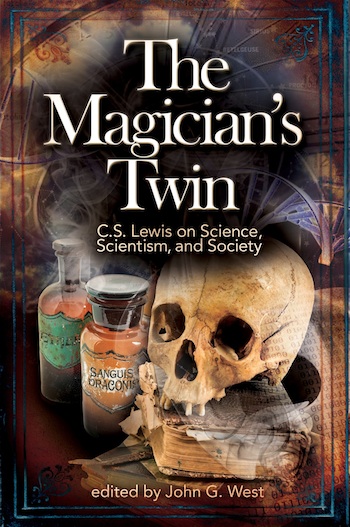The argument from reason is an old one but, as Jay Richards shows, it stands the test of time:
Naturalists tend to believe that Darwin’s account of the evolution of life is roughly correct. And they think the evidence establishes it. According to the Darwinian story, the adaptations of living things to their environment are not the result of purposeful design, but are the result of a blind process of natural selection acting on random variations within a population. Natural selection preserves and then propagates those variations that provide organisms with a survival advantage, and weeds out those that don’t…
Lewis argues that this process — which preserves survival-enhancing features — is nevertheless non-rational, and so cannot be expected to produce rational faculties. Again, if naturalism were true, then one would not expect minds and agents, choices and intentions to exist at all. If these things did exist, surely they would be mere epiphenomena of physical states. But let’s grant their existence, and even allow the naturalist the luxury of assuming that beliefs can guide our behavior. The naturalist will then want to argue that our reason and belief-forming faculties have been shaped by natural selection over eons, and so should be quite reliable.
The problem is that there are millions of beliefs, few of which are true in the sense that they correspond with reality, but all compatible with the same behavior. Natural selection could conceivably select for survival-enhancing behavior. But it has no tool for selecting only the behaviors caused by true beliefs, and weeding out all the others. So if our reasoning faculties came about as most naturalists assume they have, then we have little reason to assume they are reliable in the sense of giving us true beliefs. And that applies to our belief that naturalism is true.
This argument wasn’t original with Lewis. it appears in the Gifford Lectures given by British statesman Arthur Balfour in 1914. At the time, Balfour’s lectures were well known. They were even reported individually in the newspaper, and eventually published as the book Theism and Humanism, which Lewis credits as one of the ten books that most influenced him. But it is Lewis’s form of the argument that is still published, and read, in the twenty-first century.
Jay Richards, “C. S. Lewis and the Argument from Reason” at Evolution News and Science Today (October 26, 2021)
The essay at Evolution News and Science Today is based on Jay W. Richards’s chapter, “Mastering the Vernacular,” in The Magician’s Twin. edited by John West.
See also: John West on C.S. Lewis (who was not really a “theistic evolutionist” as the term is understood today). West: “Indeed, [Ken] Miller insists that ‘mankind’s appearance on this planet was not preordained, that we are here… as an afterthought, a minor detail, a happenstance in a history that might just as well have left us out.'” Needless to say, Lewis did not subscribe to anything similar to this and might not have recognized it as Christian.
